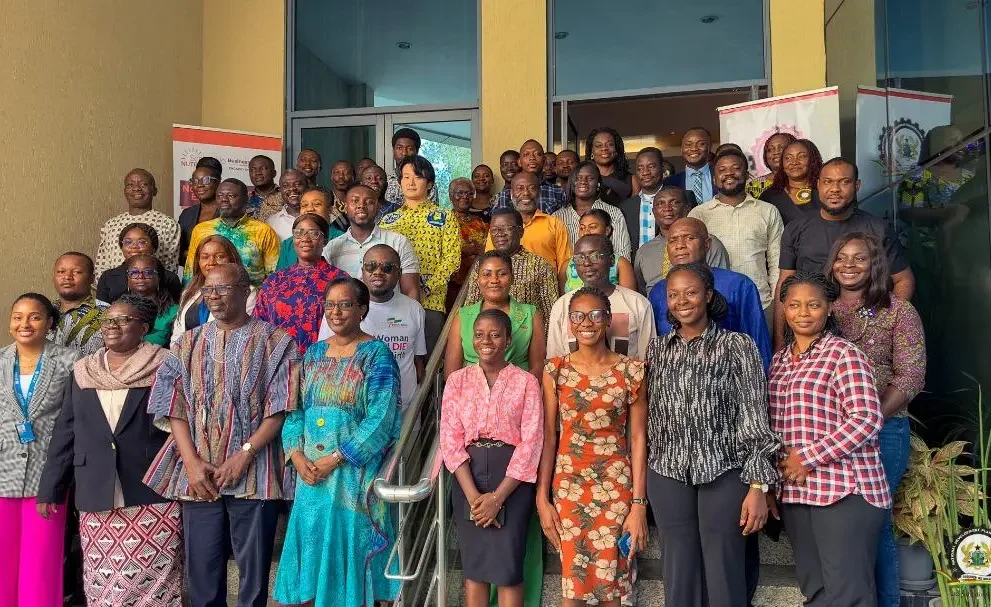The National Development Planning Commission (NDPC) and the World Food Programme (WFP) have officially launched the Scaling Up Nutrition Business Network (SBN) in Accra, a landmark initiative aimed at harnessing private-sector engagement to reduce malnutrition across Ghana. This collaboration builds upon Ghana’s membership in the global SUN Movement since 2011, where the NDPC has served as the national coordinating institution.
By convening a diverse array of stakeholders, from government ministries to civil society and academic


partners, the SBN seeks to align business interests with the country’s nutrition objectives, thereby accelerating progress on sustainable food systems and improved dietary outcomes for vulnerable populations.
The genesis of the SBN reflects recognition by both public and private actors that malnutrition is not solely a health sector concern but a cross-cutting development challenge. In Ghana, persistent micronutrient deficiencies and under-five stunting rates underscore the need for innovative approaches that extend beyond traditional nutrition programs.
Against this backdrop, the NDPC and WFP designed SBN to mobilize businesses to invest in products, services, and operations that enhance nutritional value, while ensuring commercial viability and social impact. The initiative anticipates that by leveraging the private sector’s market reach and resources, it can catalyze scalable solutions to address both undernutrition and the emerging double burden of diet-related noncommunicable diseases.
Central to the SBN’s operational strategy is the establishment of a Cross-Sectoral Planning Group (CSPG) for food systems and nutrition security, which will serve as the platform for stakeholder coordination. The CSPG brings together networks representing development partners, civil society, and academia, creating a structured forum for joint planning, resource mobilization, and policy dialogue.
Through this mechanism, the SBN aims to support businesses in integrating national nutrition priorities into their core activities, fostering healthier value chains, and strengthening linkages between producers, processors, and consumers.
Such collaboration is expected to improve food quality, increase availability of fortified and nutrient-rich products, and foster an enabling environment for continued private-sector participation.

In his capacity as Vice-Chairman of the NDPC, David Quaye Annang emphasized the pivotal role of the private sector in driving sustainable socio-economic development.
“ Nutrition offers opportunities for businesses to increase sales and profits in a sustainable way that contributes to both social and economic development ”
Honorable David Quaye Annang
Mr. Annang further noted that the SBN would leverage the private sector’s expertise, market intelligence, and operational efficiencies to improve nutritional outcomes for Ghanaian consumers, reinforcing the idea that healthy populations underpin a robust economy. Echoing this sentiment, Aurore Rusiga, Country Director of WFP Ghana, affirmed the organization’s commitment to forging collaborative pathways between government and private entities.

“ As we embark on this journey together, let us remember that nutrition is not just a health issue ”
Aurore Rusiga
She also called on development partners and community-based organizations to continue providing technical expertise and resources, highlighting that a multi-stakeholder approach is central to building resilient food
systems capable of delivering improved nutrition for the most vulnerable, while enabling communities to withstand future shocks. The launch of the SBN coincides with Ghana’s broader development agenda, including its commitment to the Sustainable Development Goals and the recently unveiled 24-Hour Economy initiative.
By embedding nutrition considerations within private-sector investment and operations, the SBN aims to catalyze a paradigm shift in how food systems are governed and financed. Success will be measured not only by reductions in malnutrition indicators but also by increased availability of fortified foods, stronger public-private partnerships, and enhanced regulatory frameworks that incentivize nutritious product innovation.
Looking ahead, the NDPC and WFP plan to scale up the SBN’s activities through targeted capacity-building workshops, market facilitation events, and outcome-driven pilot projects across key agricultural value chains. These efforts will be complemented by advocacy campaigns to mainstream nutrition in corporate strategies and government policies, ensuring that healthier choices become more accessible and affordable for all Ghanaians.
With concerted action and shared accountability, the Scaling Up Nutrition Business Network represents a promising avenue for transforming Ghana’s food environment and securing a healthier future for generations to come.
Source: NDPC, WFP launch food nutrition programme to reduce malnutrition – Graphic Online



